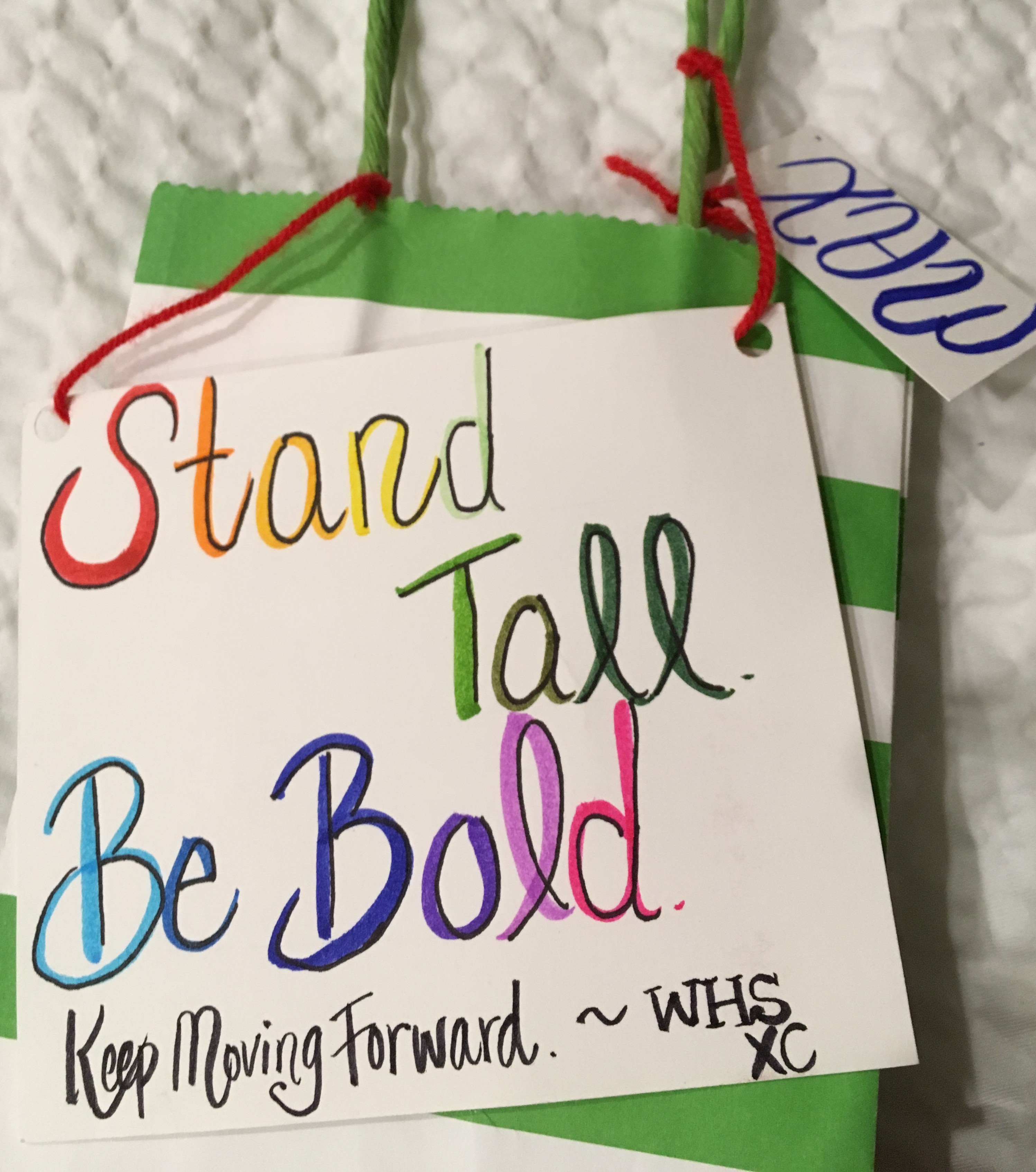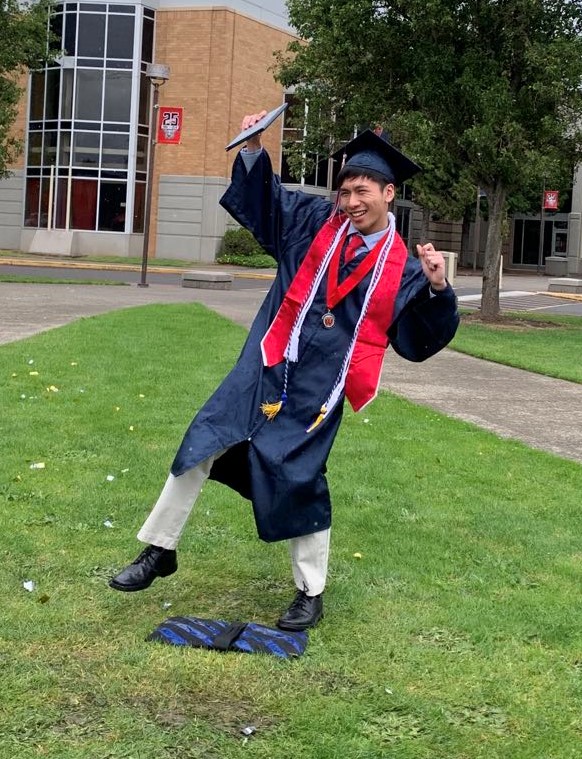Max Lin (Theguyhere)
About Me
Let me introduce myself
My Story
 For most of my childhood
and as far as my memory can take me, I lived and grew up in the suburbs on the fringes of
Portland, Oregon. Before settling there, I lived briefly in Pennsylvania, 温州 (Wenzhou, China),
and California, all before I began going to school. Even when I began my university studies, I still lived
here for the first year as I cruised through a year of remote learning while I waited
for the COVID-19 pandemic to settle down. I am definitely biased, but I couldn't have asked for
a better environment to grow up in.
For most of my childhood
and as far as my memory can take me, I lived and grew up in the suburbs on the fringes of
Portland, Oregon. Before settling there, I lived briefly in Pennsylvania, 温州 (Wenzhou, China),
and California, all before I began going to school. Even when I began my university studies, I still lived
here for the first year as I cruised through a year of remote learning while I waited
for the COVID-19 pandemic to settle down. I am definitely biased, but I couldn't have asked for
a better environment to grow up in.
I always had this innate nature in me to be creating something, whether it be some abstraction in my mind or something physical. Way back when I didn't play computer games, I would construct fantastical RPGs in my mind and wander the house fighting enemies. It wasn't long before I stumbled upon my first concrete medium of expression: Legos. These plastic building blocks gave me the opportunity to bring my thoughts into reality through the cities and war fleets that I built with my own two hands. As I matured and developed new skills in 5th grade, I began writing stories. The complex plots in my head and ideas I couldn't construct were finally freed in the form of words in the novels I wrote. From then until the end of middle school, I populated a collective of hundreds of pages with the intricate fantasies and realities that I dreamed of. It was both a practice of creativity and an expression of self.
Around this time, I began to dabble in piano and music. I technically started playing piano around 3rd grade, but I stopped taking lessons after my parents saw that I didn't practice often enough. I eventually picked it back up and began learning pieces on my own. There was a certain beauty in this form of expression that drew me towards it—something I felt that was missing from before. As I searched for more pieces, I found that I didn't like some of the pieces available and began composing my own transcriptions of songs I loved. My high school hobbies centered around this melodic form of expression as I experimented with composing piano, instrumental, EDM, and even Vocaloid songs. To share what I had created with the world, I created a YouTube channel where I can present all my efforts.
 Complimenting this
were the art classes I took in Saturday/Sunday school. I began taking them in elementary school and
continued them through my junior year of high school, learning how to sketch, paint,
and critique visual arts. The combination of music, art, and video-making forged the beginnings
of the YouTube channel that I have today. With the channel at my disposal, I started to focus on
another area that I felt like I was lacking in: speaking. Here began my podcast, a project that
stretched about two years. Every other week, I would sit down and pour out my thoughts in front of a
camera. Although the results felt rough and strange at first, I was determined to keep going for the sake of
self-improvement. It later dawned on me that self-improvement was, in fact, an art quite similar
to music and visual arts. There was no objective correctness and no formula for success—a
fusion of intricacy, grace, and humility had to be applied to the process.
Complimenting this
were the art classes I took in Saturday/Sunday school. I began taking them in elementary school and
continued them through my junior year of high school, learning how to sketch, paint,
and critique visual arts. The combination of music, art, and video-making forged the beginnings
of the YouTube channel that I have today. With the channel at my disposal, I started to focus on
another area that I felt like I was lacking in: speaking. Here began my podcast, a project that
stretched about two years. Every other week, I would sit down and pour out my thoughts in front of a
camera. Although the results felt rough and strange at first, I was determined to keep going for the sake of
self-improvement. It later dawned on me that self-improvement was, in fact, an art quite similar
to music and visual arts. There was no objective correctness and no formula for success—a
fusion of intricacy, grace, and humility had to be applied to the process.
As I continue my journey through higher education, the winds of life have become more erratic and turbulent. Sometimes, I hunker down and weather the gusts. Other times, I spread my wings and drift off somewhere new. I've landed pretty far from the traditional four-year college path, with mountains of opportunities and accidents in between. I've typically had a strong idea of what career path I wanted to take, but I've since learned that in this rapid development phase, nothing remains static. The best approach is to take things step by step...
Philosophy
Purpose
People don't buy what you do; they buy why you do it. And what you do simply proves what you believe. ~ Simon Sinek
One of the most important ideas that I've borrowed from Simon Sinek is the idea of the Golden Circle: start with the why, build the how on top of that, and the what will follow. The purpose that I've found for myself is this: Improve the lives of as many people as possible through developing infrastructure.
Values
What you risk reveals what you value. ~ Jeannette Winterson
Guiding all my decisions and actions are the following values. Nothing else is more important than these principles.
- Autonomy - All sentient entities should have their own agency
- Elegance - Richness with minimal complexity; Efficiency with beauty
- Emergence - Curate and invite rather than force and dictate outcomes
- Equity - Every sentient entity deserves a fair chance to realize their agency
- Sustainability - Design across all time horizons
- Wholeness - Consider maximal context with all information
Interests
Engineering
Design is not how it looks like and feels like. Design is how it works. ~ Steve Jobs
These are the modern magicians. Simply by reorganizing the known, a wholly new system emerges that has properties vastly different from its constituents. While people in this discipline tend to focus on how something will work, I believe more emphasis should be placed on how something will be created, perceived, exploited, and retired: the whole life cycle matters.
Computer Science
We are all shaped by the tools we use, in particular: the formalisms we use shape our thinking habits, for better or for worse, and that means that we have to be very careful in the choice of what we learn and teach, for unlearning is not really possible. ~ Edsger W. Dijkstra
Like quite a few terms in English, computer science isn't really about the science of computers but more about abstraction of complex systems. How information flows and how calculations are made don't necessarily require computers—computers just make the operations much faster and scalable. Not only is this discipline ubiquitous in the modern world, but it instills a way of thinking useful to other disciplines.
Economics
Every time you spend money, you're casting a vote for the kind of world you want. ~ Anna Lappe
Economics gets a bad rep for being an attempt to rationalize the irrational and solely about making money, but that is merely the consequence of the contemporary economic models being taught. I find this discipline to be more about how limited resources are managed by many actors, and how a vast array of actors can coordinate in many ways.
Governance
Government is an art, not a science, and an adventure, not a planned itinerary. ~ Donald Creighton
I avoid using "politics" as that typically brings a hostile, negative connotation, especially within the current divisive atmosphere. I instead find intriguing how a group of actors govern themselves, make collective decisions, and work toward a common goal. Questions of governance address our most deep-seated biases and ask us to dig for that moral compass. Avoiding these questions merely delays and amplifies conflict.
Music & Art
We don't make mistakes, just happy little accidents. ~ Bob Ross
The beauty in the arts comes down to the fact that value is derived from our individual interpretations of what each work is about and how the artist arrived there. Subjectivity is embraced, not something we pretend doesn't apply. What we see in artistic pieces may as well be a reflection of ourselves.
Book Recommendations
Essentialism - Greg McKeown
This book has been fundamental to how I've shaped my mindset around issues and daily operations. In a world where the scarce resource is time and focus, this book provides a protocol that protects these resources from encroachment. Highly recommended for those who feel overwhelmed and are open to a shift in worldview.
Indistractable - Nir Eyal
Self-discipline is hard, but it's also what allows us to use our freedom to its true potential. This book breaks down distractions and productivity, with tips for how to improve your relationship with productivity from whatever starting point. Great for anyone who wants to improve their work and focus.
Reinventing Organizations - Frédéric Laloux
For those who are interested in the organizational structures that people use, this book provides a strong theoretical basis for the evolution of human organization and breakthrough models. While mostly about group dynamics, it also calls into question our thought processes and motives. Amazing book for those in management positions.
Thinking in Systems - Donella H. Meadows
Often, the mental models we use to understand our world impacts perception, and therefore reaction. By developing the holistic perspective taught by this book, we can better understand the nature of complex systems, why certain issues in our society persist, and how we may be able to combat them. A detailed but beginner-friendly book recommended for all.
Current Focus
Some near-term goals for myself related to career and hobbies.
- Develop skills and learn theory for properly managing manufacturing environments.
- Improve musical capacity for writing piano sheet music.
- Refine my habits and personal operating systems to accelerate personal development.